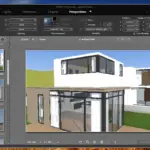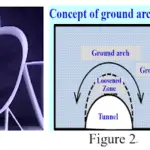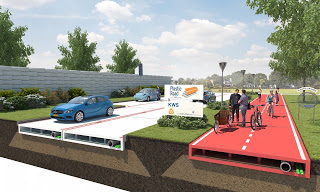 |
| Plastic roads would last up to three times as much as asphalt. Image: VolkerWessels |
Dutch company named VolkerWessels is a high profile group of companies having roots in Netherlands with experts and professionals from round the globe. The company has recently launched a project titled “Plastic Road”.
The name seems interesting as one can’t expect a plastic bearing a load of heavy vehicles, but this lightweight design, a fraction of the construction time, virtually maintenance free, and three times the expected lifespan, having 100% recycled material is an ideal sustainable alternative to the asphalt road structures.
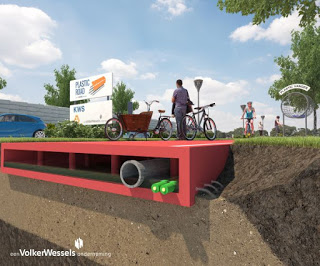 |
| Plastic roads would last up to three times as much as asphalt. Image: VolkerWessels |
The idea was still in a conceptual stage, but recently Rotterdam city council has shown its interest in paving its streets with plastic bottles and considering piloting a new type of road surface touted by its creators as a green alternative to asphalt.
The claims of VolkerWessels are that it requires less maintenance than asphalt and could withstand greater extremes of temperature. Roads could be laid in a matter of weeks rather than months and lasts about three times as long.
Sections can be prefabricated in a factory and transported to where they are needed, reducing on-site construction, while the shorter construction time and low maintenance will mean less congestion caused by roadworks. Lighter materials can also be transported more efficiently.
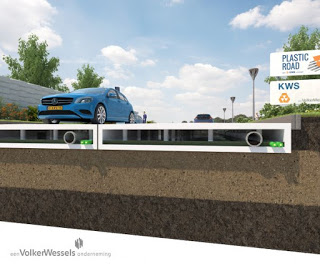 |
| Green Roads |
Another benefit is that the mentioned roads are hollow, which creates room for power cables and utility pipelines below the surface. Although the idea is still a concept, VolkerWessels expects to finish the first fully paved public road with recycled plastic within three years.

